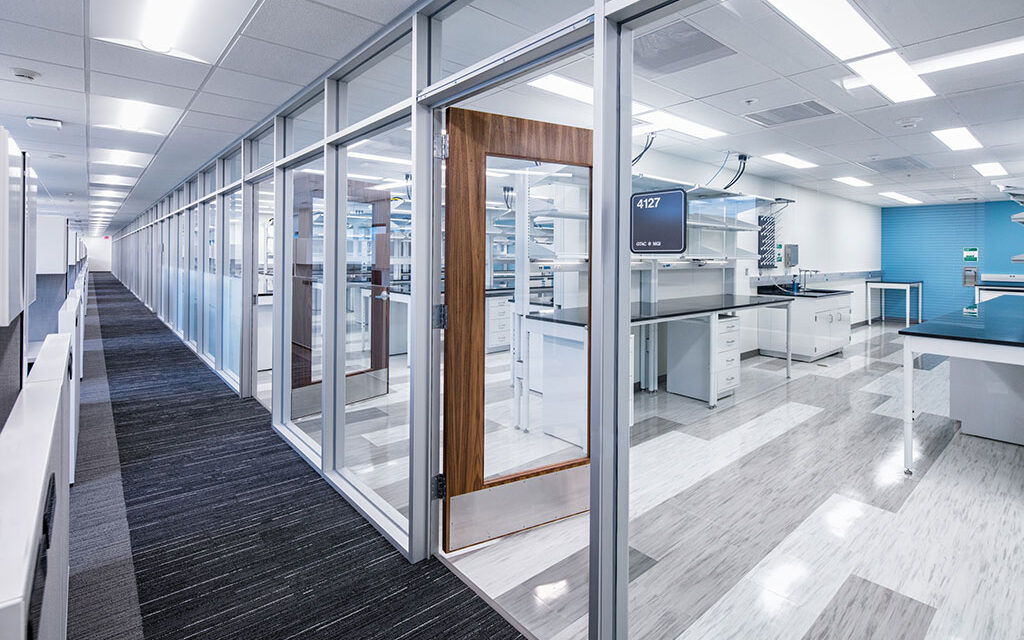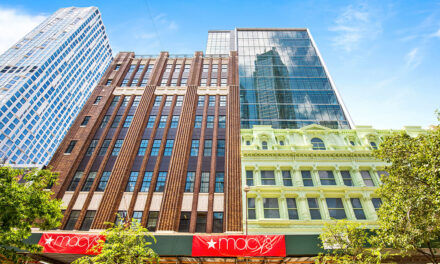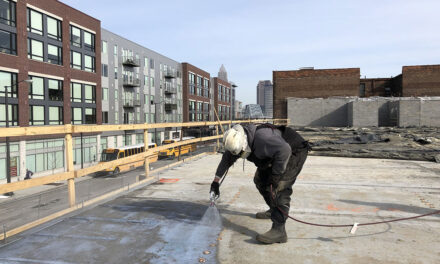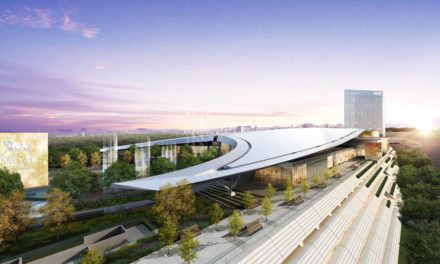In 2015, Washington University School of Medicine (WUSM) in St. Louis, MO, hired KWK Architects to develop a phase one-campus plan https://outlook.wustl.edu/building-connections/. Building Connections included key mission areas, such as Medical Education, led by KWK Architects Principal Eric Neuner. KWK facilitated a detailed review of the Medical Education Program with key leaders of the Medical School. The team analyzed which departments needed to be adjacent to each other, where the different departments made sense on campus, and which departments could share what spaces, if any. Gaining a thorough understanding of just how the School of Medicine utilized its existing space was a key step in the process.
“KWK helped us kick off our campus planning efforts in 2015, and we worked closely with them as we have continued to build from that initial plan concept in support of the research and clinical care missions. Our work is bringing communities together and improving the campus experience for employees, patients, students and visitors,” said Melissa Rockwell-Hopkins, Assistant Vice-Chancellor, and Assistant Dean of Operations and Facilities School of Medicine.
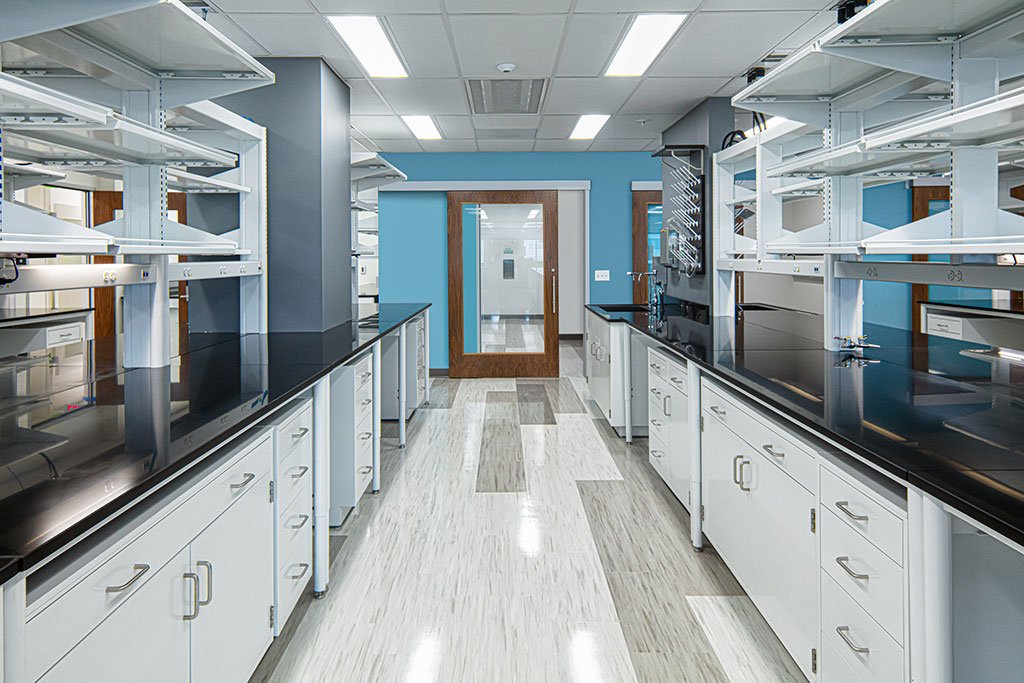
Photo courtesy of KWK Architects
Since the master plan’s completion in 2015, KWK has worked on over 40 design and study projects on the School of Medicine Campus. These include projects outlined in the master plan and additional enabling projects that have helped support campus growth and recruitment activities. Phase II work included projects such as the renovation of space for the McDonnell Genome Institute – Genome Technology Access Center (GTAC@MGI), aiming to improve the human condition by producing, studying, and interpreting high-quality, genome-based data that drives biological discoveries. For example, MGI has been involved in research on COVID-19 testing, developing a new saliva-based test that results in less than one day.
The new GTAC@MGI space, completed in July 2020, is located on the 4th Floor of the 4444 Forest Parkway Building. KWK’s team worked within the university’s design and planning standards to implement the efficient use of space within an existing building envelope, providing the university with tremendous value by avoiding new out-of-ground construction costs.
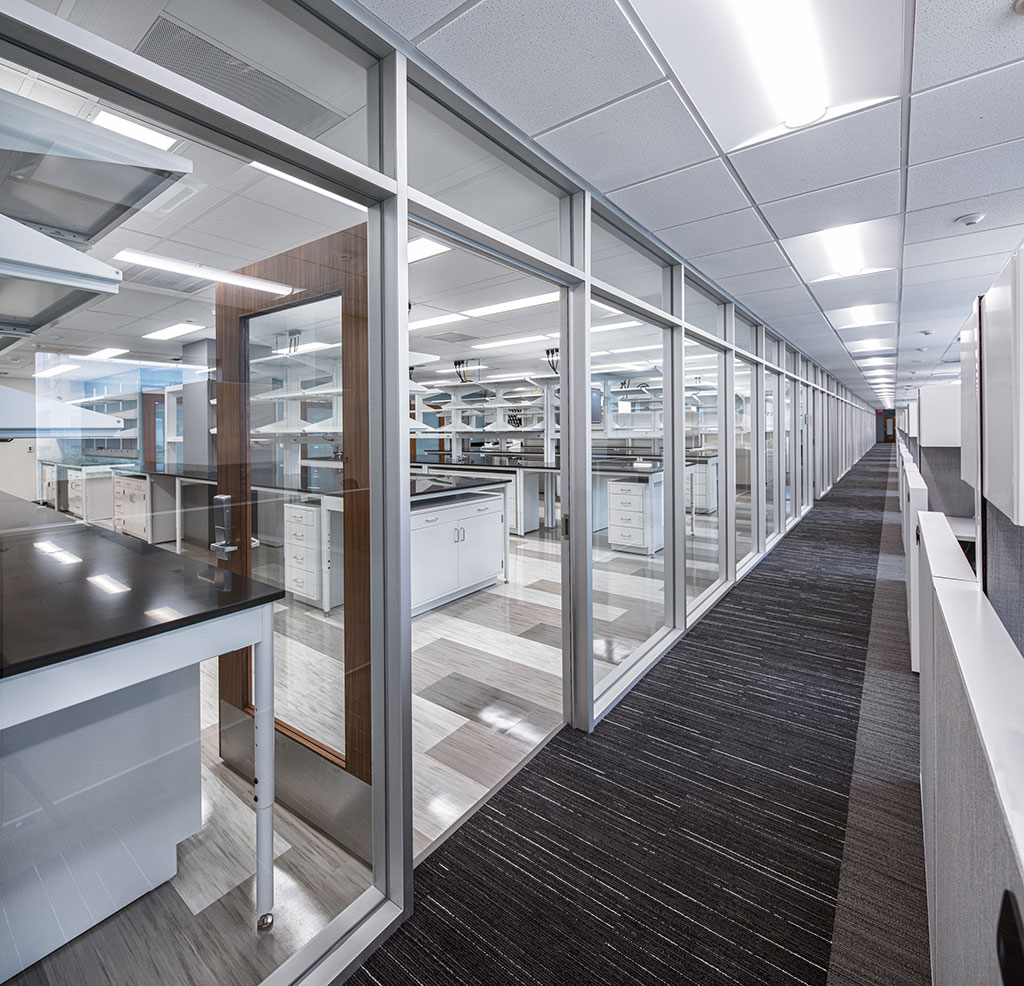
Photo courtesy of KWK Architects
KWK designed the 22,500 square feet of renovated space to include a genome sequencing lab, BSL-2 laboratories, administrative offices, kitchenette/break room, conference, and huddle rooms. Interior finishes include aluminum door and borrowed lite frames, walnut veneered wood doors, carpet tile, and vinyl composition tile with Diamond 10 coating to reduce maintenance lifecycle costs.
KWK Project Manager Andy Noll conducted multiple interactive design workshop meetings with the university’s lab groups to work out the placement and fit of over 900 pieces of scientific instruments and equipment within the space.
“Tracking and placing of these three-dimensional elements in a highly organized manner were key to the project’s success,” said Noll.
For more information about KWK Architects’ university master planning expertise, visit www.kwkarchitects.com/markets/details/master-planning.
About KWK Architects
Founded in 2013 by five architects with a combined 120 years of higher education knowledge and experience, KWK Architects partners with colleges and universities across the United States to create innovative and inspiring places that enhance campus life. Areas of expertise include student housing and dining and academic and science/technology spaces. KWK Architects has completed more than $1 billion in construction-valued projects since its founding and currently employs a growing staff of 15 at its headquarters in St. Louis, MO. For more information about KWK Architects, visit www.kwkarchitects.com or contact the Director of Marketing Cindy Hausler at cindyh@kwkarchitects.com.

